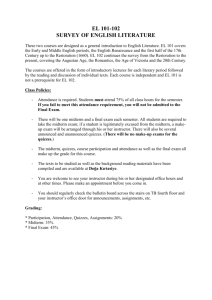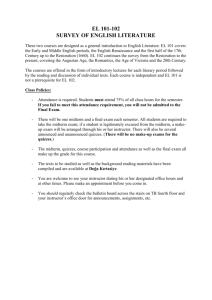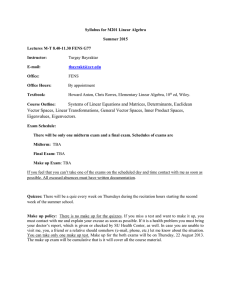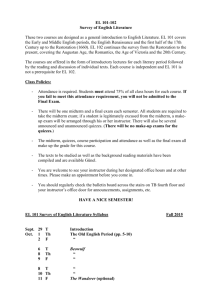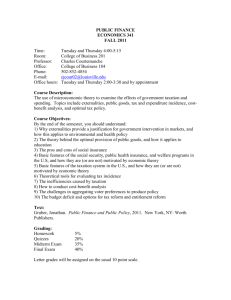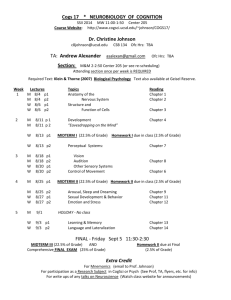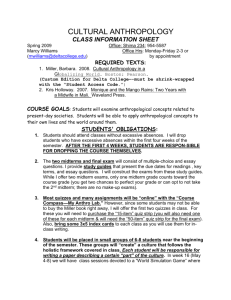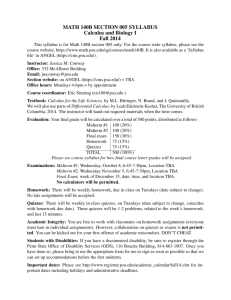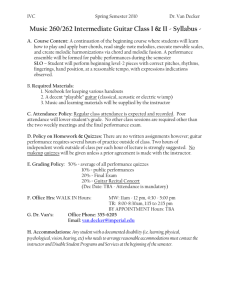el 101-102 survey of english literature
advertisement
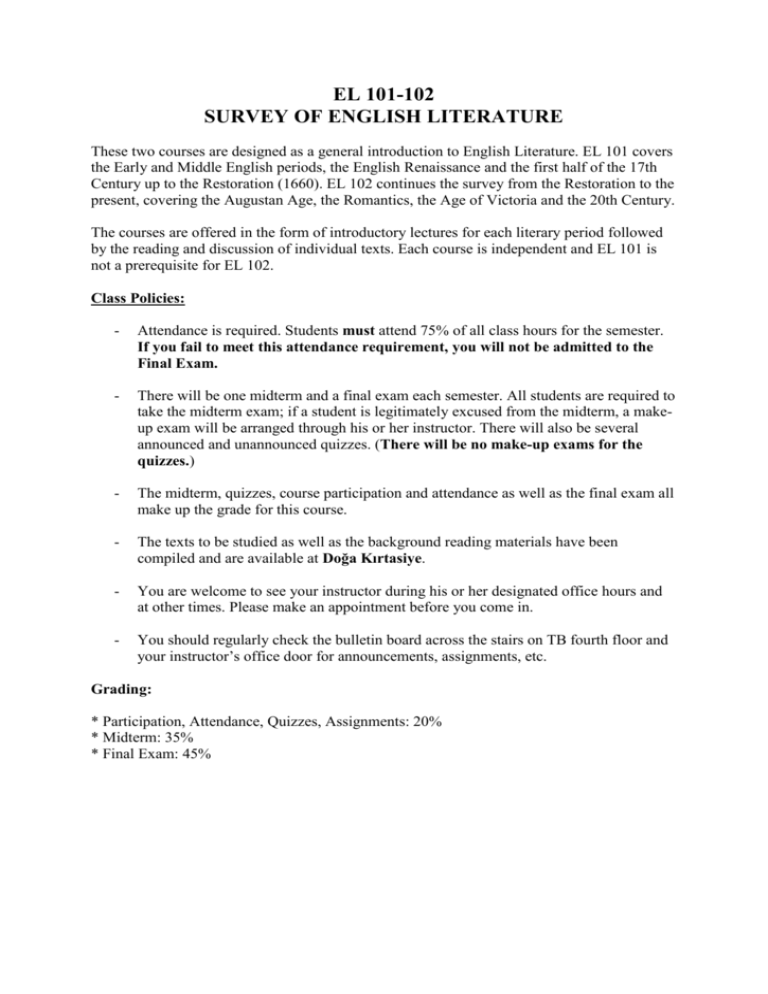
EL 101-102 SURVEY OF ENGLISH LITERATURE These two courses are designed as a general introduction to English Literature. EL 101 covers the Early and Middle English periods, the English Renaissance and the first half of the 17th Century up to the Restoration (1660). EL 102 continues the survey from the Restoration to the present, covering the Augustan Age, the Romantics, the Age of Victoria and the 20th Century. The courses are offered in the form of introductory lectures for each literary period followed by the reading and discussion of individual texts. Each course is independent and EL 101 is not a prerequisite for EL 102. Class Policies: - Attendance is required. Students must attend 75% of all class hours for the semester. If you fail to meet this attendance requirement, you will not be admitted to the Final Exam. - There will be one midterm and a final exam each semester. All students are required to take the midterm exam; if a student is legitimately excused from the midterm, a makeup exam will be arranged through his or her instructor. There will also be several announced and unannounced quizzes. (There will be no make-up exams for the quizzes.) - The midterm, quizzes, course participation and attendance as well as the final exam all make up the grade for this course. - The texts to be studied as well as the background reading materials have been compiled and are available at Doğa Kırtasiye. - You are welcome to see your instructor during his or her designated office hours and at other times. Please make an appointment before you come in. - You should regularly check the bulletin board across the stairs on TB fourth floor and your instructor’s office door for announcements, assignments, etc. Grading: * Participation, Attendance, Quizzes, Assignments: 20% * Midterm: 35% * Final Exam: 45% EL 102 Survey of English Literature Syllabus Spring 2016 Feb. 9 11 12 T Th F Introduction: Restoration and the Eighteenth Century “ “ “ “ Feb. 16 T 18 Th 19 F Feb. 23 25 26 T Th F Dryden, “Mac Flecknoe”: lines 1-30, 139-151, 197-217 Dryden (cont.), “To Dr. Charleton” Pope, “An Essay on Man” -Epistle 1: All -Epistle 2: 1-66 Pope (cont.), “An Essay on Man” -Epistle 3: 1-26 -Epistle 4: 1-34, 49-80 Swift, “A Modest Proposal” Johnson, “Rambler No. 5,” “A Short Song of Congratulation” Introduction: The Romantics March 1 3 T Th 4 F March 8 10 11 T Th F Coleridge, “Frost at Midnight,” “Kubla Khan” Byron, “Prometheus,” “She Walks in Beauty” Shelley, “Ozymandias,” “England 1819,” “To a Skylark” March 15 17 18 T Th F Shelley (cont.) / Keats, “La Belle Dame” Keats (cont.), “Ode on a Grecian Urn” Introduction: The Victorians March 22 24 25 T Th F “ “ Tennyson, “Ulysses” Browning, “My Last Duchess” March April 29 31 1 T Th F Arnold, “Dover Beach,” “To Marguerite-Continued” Kipling, “The White Man’s Burden” D. G. Rosetti, “Body’s Beauty,” “Without Her” April 5 T 7 8 Th F C. Rossetti, “Song,” “A Better Resurrection” Hopkins, “Pied Beauty,” “Spring and Fall” Introduction: The Twentieth Century “ 12 T 14 15 Th F April “ “ Blake, “The Lamb,” “The Tiger,” “The Chimney Sweeper” (2x) “Nurse’s Song” (2x) Wordsworth, “Westminster Bridge,” “It Is a Beauteous Evening,” “The World Is Too Much with Us” April 18-22: Spring Break Hardy, “Hap,” “God-Forgotten,” “The Man he Killed” OR “At Tea Yeats, “The Second Coming,” “Sailing to Byzantium” T.S. Eliot, “The Love Song of J. Alfred Prufrock” T.S. Eliot (cont.) April May May 26 T 28 29 Th F 3 T 5 6 Th F 10 12 13 T Th F Joyce, Dubliners “Eveline” Orwell, “Shooting an Elephant” Woolf, “A Room of One’s Own” Smith, “Papa Love Baby,” “Not Waving But Drowning” Auden, “Musee des Beaux Arts,” “Epilogue” Thomas, “Do Not Go Gentle into That Good Night,” “And Death Shall have no Dominion” Larkin, “An Arundel Tomb,” “Ambulances” Heaney, “Punishment,” Dunn, “The Clothes Pit,” “Modern Love” Hughes, “The Thought-Fox,” Harrison, “Book Ends” TBA TBA TBA
